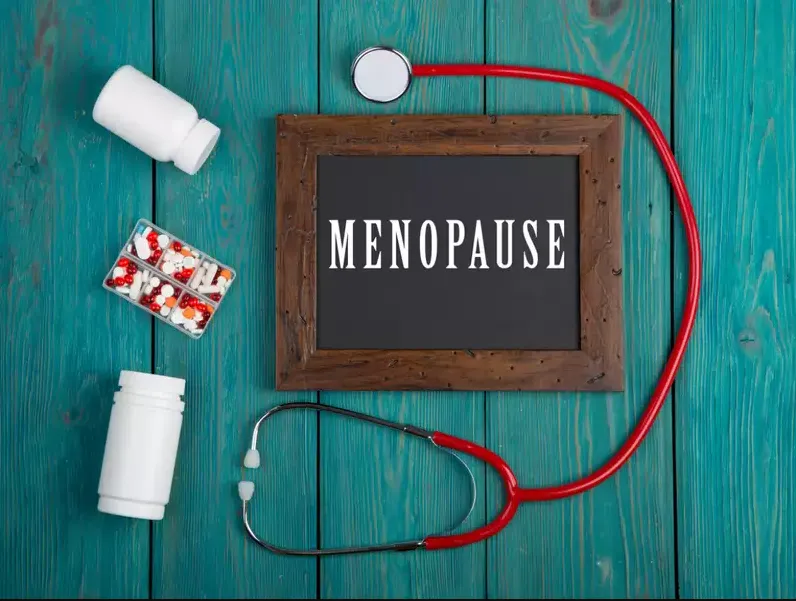Are you experiencing hot flashes, fatigue, mood swings, irregular periods? You might be heading toward menopause. Dr. Shweta Shah talks about menopause and perimenopause.
Women feel comfortable approaching this female gynaecologist in Malad, Mumbai. Many women have approached her regarding their gynaecological problems, including infertility and PCOD.
She is proficient in IVF and IUI procedures and is a full-time consultant at Cloud Nine hospital in Malad, Mumbai.
Dr. Shweta Shah is an expert laparoscopic surgeon in Malad and has skillfully carried out many total laparoscopic hysterectomies to date.
If you are keen to know about menopause and its treatment, take a look at this article.
Let us start with the basics.
What is menopause?
Menopause technically is no period for one year and above.
You have gone into full menopause if you are no longer getting your periods.
Symptoms:
Symptoms can vary from woman to woman. Some women go through a smooth transition where that is the only thing that they notice.
It can be quite severe in other women.
- They may have hot flashes and night sweats.
- Insomnia and mood changes.
- Vaginal dryness.
- Pain with intercourse.
- They may have palpitations.
If you are experiencing any of the above symptoms, contact your gynaecologist doctor in Malad. There is a whole host of symptoms that women may have.
What is perimenopause?
Perimenopause is a frame of time that could even last 10 years before menopause, where women start noticing that their menstrual periods become somewhat irregular.
They may become closer together for a while, every 21 days instead of the usual 28 days.
Eventually, they may start missing periods where they have a period every one to three months. Finally, they stop having periods.
At what age do women start experiencing perimenopause?
You can be in the late 30s, early 40s, which is pretty typical to be in the perimenopausal phase, followed by the menopausal stage. The production of hormones estrogen, progesterone, and testosterone reduces, causing hormone deficiencies.
How does the significant reduction in hormones affect in the long run?
Over the course of the 30 years that a woman may live beyond menopause, let us say she goes through an average age of menopause at 51 and lives to an age of 81.
Over the course of those 30 years,
- she may develop osteoporosis, which is a thinning and inflexibility of the bones, which can lead to fracture and disability.
- can lead to heart disease, stroke, and heart attacks.
- can lead to dementia.
Now, let us know,
What is hormone replacement therapy?
Dr. Shweta Shah, one of the best gynaecologists in Malad, says hormone replacement therapy replaces the hormones that a woman makes in her reproductive years, which are estrogen, progesterone, and testosterone.
What are the benefits?
The benefits are that hormone therapy can help protect the bones from osteoporosis.
It can also help protect against heart disease and protect against dementia, including Alzheimer’s.
What about the risks of hormone replacement therapy?
Depending on the type you are using, hormone therapy does carry a slight increase in the risk of breast cancer.
What is bioidentical hormone replacement?
It is a product that is synthesized from plant sources to look like your natural hormones.
So, the benefits are that bioidentical hormone therapy
- can help keep your bones strong,
- prevent osteoporosis,
- can prevent heart disease as well as prevent dementia.
In addition, it helps with quality-of-life issues and the vaginal and bladder tissues.
The risks that are considered are a slight increase in the risk of breast cancer.
What kind of lifestyle changes can you employ to reduce your symptoms?
We know that women who weigh less tend to have fewer hot flashes and night sweats.
Write Dr. Shweta Shah, one of the top gynaecologists in Malad suggests:
Weight reduction can be helpful.
Eating a healthy diet, avoiding alcohol, too much caffeine, too many sugar products can be helpful in weight reduction.
Regular exercise can be helpful.
Some products can be used to manage the symptoms, for example,
- wearing breathable clothing at night.
- Wearing a cool pad underneath your sheets on your mattress to avoid night sweating.
- Some pillows are now made with cooling properties. If you are experiencing night sweat, using these will help you sleep a little better.
These are some practical things that can be done.
There are some prescription medications that gynaecologists may prescribe to women that are non-hormonal that can be helpful with some of the symptoms that women have.
Conclusion:
You are a woman going through your late thirties and starting to have symptoms, or into your fifties or beyond.
It is essential to talk to your gynaecologist about what you may be experiencing, and can help you figure out an individualized plan.
It can be hormone therapy or something else to help you through this transition.

